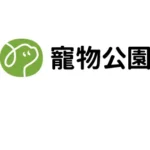SK Hynix Inc., a global leader in memory chip manufacturing, and its South Korean ally, TEMC Co., have reached a significant milestone by jointly developing a groundbreaking neon gas recycling technology. This innovation marks a first in the semiconductor industry, promising to drastically cut costs and environmental impact for chip makers.
Neon gas, a critical component in the lithography process of chip manufacturing, has traditionally been imported at substantial costs by companies like SK Hynix and Samsung Electronics. The recent geopolitical tensions have only exacerbated these challenges, with neon gas prices surging due to production disruptions in Ukraine, a major global supplier. In response, SK Hynix and TEMC’s collaboration over the past year has yielded a solution that not only mitigates reliance on imports but also champions sustainability.
The novel approach involves reclaiming neon gas post-lithography through a sophisticated filtration system, allowing for its purification and reuse. This process not only forecasts annual savings of around 40 billion won ($30 million) for SK Hynix but also sets a new standard for environmental responsibility in the sector. With a current recovery rate of 72.7%, plans are underway to enhance this to 77%, further bolstering the initiative’s efficiency.
Moreover, this technology stands to significantly reduce greenhouse gas emissions, specifically targeting Scope 3 emissions by decreasing 12,000 metric tons of carbon dioxide equivalent per year. This initiative aligns with SK Hynix’s broader environmental strategy, which includes ambitious targets for increasing the use of recycled materials in chip production to 25% by 2025 and 30% by 2030.
The company’s commitment extends beyond neon, with aspirations to develop similar recycling technologies for other gases and chemicals pivotal to chip manufacturing by 2025. SK Hynix’s efforts underscore a growing trend in the semiconductor industry towards greener manufacturing practices and enhanced competitiveness through sustainability.
This pioneering venture not only signifies a leap towards self-sufficiency in semiconductor production but also exemplifies the industry’s capacity for innovation in the face of supply chain and environmental challenges. As SK Hynix and TEMC lead the charge, the global semiconductor industry watches closely, potentially marking the beginning of a new era in sustainable manufacturing practices.



